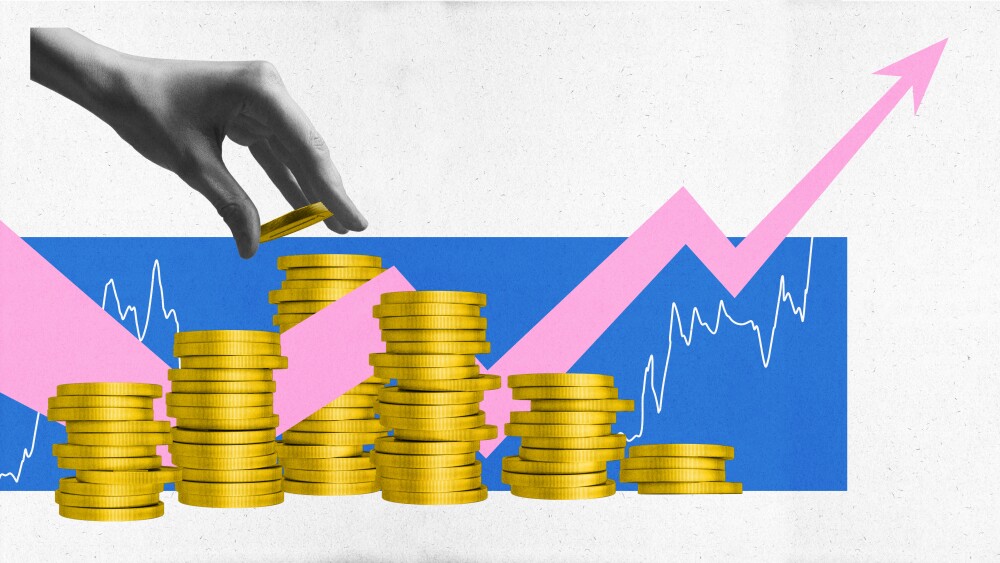As the FDA prepares to discuss booster shots for Moderna and J&J vaccines, a new study came out suggesting that mixing and matching vaccines works well and is safe.
As the U.S. Food and Drug Administration (FDA) prepares to discuss booster shots for the Moderna and Johnson & Johnson vaccines on October 14 and 15, a new study came out suggesting that mixing and matching vaccines works well and is safe. Read on for that story and more COVID-19 news.
Mixing & Matching COVID-19 Vaccines Safe and Effective
A study from the National Institutes of Health (NIH), which has yet to be peer-reviewed, investigated mixing and matching COVID-19 vaccines, specifically the Pfizer-BioNTech, Moderna, and Johnson & Johnson vaccines. Essentially, this refers to taking a booster dose different from the initial vaccination series.
The study found that individuals who received the J&J single-shot vaccine had stronger antibody levels after they received boosters by Moderna or Pfizer-BioNtech compared to another J&J shot. People who received either the Moderna or Pfizer-BioNTech first and received either of the two as boosters had similarly strong immune responses.
The study wasn’t designed to show which vaccine was best, but Dr. John Beigel, associate director for Clinical Research in the Division of Microbiology and Infectious Diseases at the National Institute of Allergy and Infectious Diseases (NIAID) said, “It is, I think, a critical piece because it tells you how we can use the vaccines interchangeably and what happens if we do. It’s really designed to say: Are there any concerning signals here? And based on the data, I think the answer is no.”
Biden Administration Pushes Moderna to Increase Global Vaccine Supply
During a “How To Vaccinate The World” panel event, David Kessler, the Biden administration’s chief science officer of the COVID-19 response, pushed Moderna to provide more of its vaccine to the global initiative COVAX at not-for-profit prices.
“We expect that Moderna will step up as a company,” Kessler said. “Failure to do that would be unconscionable in my view.”
He added that they had pointed out to Moderna that the company had already received $10 billion in taxpayer funding. In what is likely viewed as a threat, he said, “These companies understand our authorities and understand we would not be afraid to use them. The United States government has played a very substantial role in making Moderna the company it is.”
Two in Three Parents Say They Will Vaccinate 5- to 11-Year-Olds
According to a new survey by the COVID-19 Vaccine Education and Equity Project, two-thirds of parents with children ages 5
–11 years say they will probably get them vaccinated against COVID-19 once a vaccine is authorized for them. That number seems consistent with the general vaccination response in the U.S.—approximately two-thirds. They also found that parents of children who were 5
–18 years of age decided to get their kids vaccinated depending on their vaccination status. If the parents were unvaccinated, they claim that the vaccines were developed too quickly, or they are concerned about possible side effects.
Again, about two-thirds, or 60%, of those surveyed supported vaccine requirements in schools, although about 78% of vaccinated parents supported the requirement and 86% among vaccinated parents of children 12
–18 years of age.
WHO Appoints New Team to Investigate Origins of COVID-19 Pandemic
The World Health Organization (WHO) has appointed another team to investigate the source of the COVID-19 pandemic, dubbed the Scientific Advisory Group on the Origins of Novel Pathogens (SAGO). It has proposed a list of 26 members, all researchers, from 26 countries. Six were also part of the first international team that traveled to China early this year to investigate the pandemic’s origins. That group found it to be “extremely unlikely” that it came from a leak in the Wuhan Institute of Virology (WIV), the so-called “lab leak” theory.
The other theory, consistent with earlier outbreaks of coronaviruses that caused SARS and MERS, is that the virus jumped from bats to intermediary animals and then to humans. But the investigation has been rife with politics and conspiracy theories and very few solid conclusions. One of the original WHO team members, Dr. Peter Daszak, a U.S. zoologist, has been accused of conflicts of interest. His nonprofit, EcoHealth Alliance, received more than $800,000 in grants from the NIAID, and some of that money went to subgrants to WIV. He is also the author with other scientists of correspondence in The Lancet where he declared no competing interests—the correspondence debunked the lab-leak theory before he was assigned to investigate it.
The first WHO team’s investigation into the lab leak was cursory, at least partly because the Chinese government has obstructed any investigation, refused access, and tightly controlled information.
The Chinese government is opposed to SAGO, although WHO’s list includes one Chinese candidate, Dr. Yungui Yang, deputy director at the Beijing Institute of Genomics at the Chinese Academy of Sciences and one of the leaders from the Chinese side of the first investigative team. A proposed member from the U.S. is Dr. Inger Damon, director of the Division of High-Consequence Pathogens and Pathology at the Centers for Disease Control and Prevention (CDC).
The list of experts includes expertise in ethics and social sciences related to disease outbreaks and scientific expertise, which is the strongest representation.
Part of the rationale behind this new panel is that it will also focus on future pandemics and outbreaks, which they hope will take some of the controversies out of the current debate over COVID-19 origins.
“We want to take it more away from the political debate and move it back into the scientific debate,” said Dr. Maria Van Kerkhove, head of emerging diseases and zoonoses in WHO’s Health Emergencies Programme. “That’s our real aim now.”





